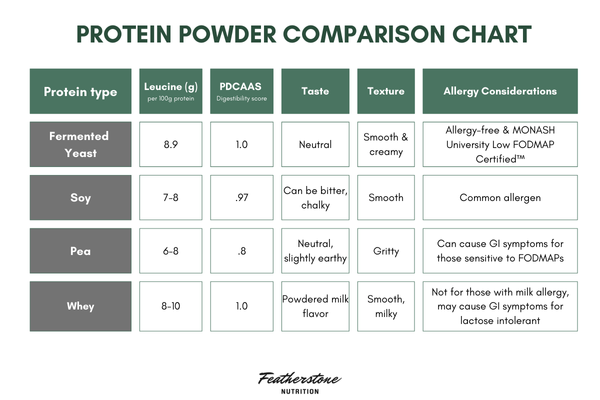This post is part of a paid sponsorship with RNWY.
Vegan protein for athletes
Adequate protein consumption is imperative for athletes to maintain, repair, and rebuild muscle so our bodies can continue performing daily during our chosen activity. Consuming enough protein can be difficult for many athletes. It can be even more difficult for vegetarian and vegan athletes due to fewer protein options when cutting out meat or animal products. Many plant-based proteins’ lower quality and digestibility increase our protein needs as plant-based athletes.
Supplementing with protein powder
Protein powders have grown increasingly popular to help athletes and the general population meet their protein needs quickly. While we always recommend eating a balanced diet with plenty of whole foods, fruits, and vegetables, protein powders can be a valuable tool to help meet increased protein requirements. Plant-based protein powder is a great way to meet protein needs for vegetarians, vegans, plant-based runner, and other runners.
Leucine: An essential amino acid for athletes
The limiting factor of some plant-based proteins or protein powders is that they lack adequate leucine. Leucine is an essential branched-chain amino acid (BCAA) that is required for muscle protein synthesis (MPS). MPS is necessary for muscle recovery and growth. Studies have shown a greater response in MPS when consuming whey protein vs. soy protein post-exercise. When consuming 20g or 40g of whey protein compared to 40g of soy protein post-exercise, MPS was more significant in the whey protein groups.
Along with an adequate protein intake of 20-40 grams at least three times per day, research has shown that we need at least 2.7g of leucine to stimulate MPS. Generally, athletes who are vegan or vegetarian need to consume 20-40% more protein than those consuming animal proteins to meet leucine needs, which equates to 20-54g of plant-based protein per eating occasion.
Types of vegan protein powder
Soy protein
Made from soybeans and contains all 9 essential amino acids. As one of the top food allergens, soy may cause allergic reactions or sensitivities in some people.
Pea protein
Made from dried yellow split peas, it contains all 9 essential amino acids. Although this protein powder is easily digestible for some, it can cause GI symptoms for those with sensitive guts.
Baker’s Yeast (Fermented Nutrition Yeast Protein)
Derived from yeast during the fermentation process and contains all 9 essential amino acids. It is an allergy-free, sustainable, and high-quality protein source. Baker’s Yeast also uses less carbon emissions than soy or beef.
Digestibility
Plant-based proteins are more difficult for our bodies to digest & absorb, which is part of the reason we have to eat more of a certain food or protein powder to reap the muscle recovery and/or growth benefits. Plant-based protein quality is measured by the PDCAAS score (Protein Digestibility Corrected Amino Acid Score). The closer this number is to 1.0, the better the protein digestibility and the less you have to eat of that protein to stimulate muscle recovery and growth.

Which vegan protein powder is right for me?
When it comes to nutrition supplements, to ensure that your protein powder has adequate amounts of leucine (and every other ingredient on the nutrition facts label), look for an amino acid breakdown on the label certification from Informed Sport or NSF Certified for Sport.
You may also want to consider: What type of protein do you tolerate the best? How many servings will you need to consume to meet your protein and leucine targets? What tastes the best to you?
The new vegan protein powder from RNWY provides 25 g protein from bakers yeast, 2.2 g leucine, nine essential amino acids, 5 g creatine, and 150 mg digestive enzymes. YESTEIN, the Baker’s Yeast product in RNWY Complete Protein, is produced using a circular economy model that reduces water and land use, and carbon emissions. Try the new RNWY Complete Protein and save 15% with code FEATHERS15.
PMID: 33266120, 30167963, 38626029, 25628520
Disclaimer: The content in our blog articles provides generalized nutrition guidance. The information above may not apply to everyone. For personalized recommendations, please reach out to your sports dietitian. Individuals who may chose to implement nutrition changes agree that Featherstone Nutrition is not responsible for any injury, damage or loss related to those changes or participation.


Wow!!! 25 grams in a vegan 🌱 protein is huge!!! Thank you for this 💗